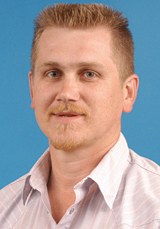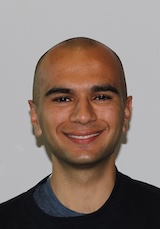Syllabus
EE-30023/31023, Department of Electrical Engineering, University of Notre Dame
EE-30023 and EE-31023 are the lecture and lab course numbers, respectively, for Digital Radio Communication Systems, a junior / senior elective course offered in the Department of Electrical Engineering at the University of Notre Dame. The latest offering of this course in Spring 2024.
Instruction Team
| Role | Name | Office | Photo | |
|---|---|---|---|---|
| Instructor, PI | J. Nicholas Laneman | 264 Fitzpatrick Hall | jnl@nd.edu |  |
| Advisor, Co-PI | Bertrand Hochwald | 203B Cushing Hall | bhochwald@nd.edu |  |
| Advisor, Co-PI | Jonathan Chisum | 226A Cushing Hall | jchisum@nd.edu |  |
| Engineering Staff | Clint Manning | 253B Cushing Hall | cmanning@nd.edu |  |
| Teaching Assistant | Omkar Mujumdar | 248 Cushing Hall | omujumda@nd.edu |  |
| Teaching Assistant | Michael Baram | 307 Stinson-Remick Hall | mbaram@nd.edu |  |
Meetings
Lecture days and times will be:
- Lectures: Mondays, Wednesdays, & Fridays, 11:30am-12:20pm, 207 DeBartolo Hall
Lab Section days and times will be:
Lab Section 1: Mondays, 2:00-5:00pm, 116 Cushing Hall
Lab Section 2: Thursdays, 2:00-5:00pm, 116 Cushing Hall
Meetings work best (and are most fun) when they are highly interactive, so your participation is important and strongly encouraged. Remember that asking questions - whether in class or lab - is a sign of engagement in the material, not an expression of weakness!
Office Hours
The instructor will not schedule formal office hours, but will be available immediately before or after lecture and at the start of lab sections to address student questions on all aspects of the course.
The engineering staff and teaching assistant will be very available during lab sections to assist students with lab work and address broader questions about homework and other technical course content.
Please bear in mind that the instruction staff have many other responsibilities, so try to make the most of these built-in opportunities for interaction.
If an issue cannot be adequately addressed at the above times, or if you need additional help, we may be able to briefly meet with you individually; send us e-mail to try to schedule an appointment, or feel free to drop by our offices whenever the door is open.
Course & Reference Materials
The course development and instruction team will be preparing lecture notes, prelab and quiz problems, and labs exercises that will be distributed at the appropriate times. Together with an evolving educational radio kit for laboratory exercises, we have started to refer to all these materials as RadioWare.
Released materials will be available in the following webpage:
- RadioWare Website, https://ndwireless.github.io/radioware/
Your careful review of, feedback on, and even contribution to these materials will be very appreciated.
The recommended textbook for the course is:
- Michael Rice, Digital Communications: A Discrete-Time Approach, Second Edition, Self Published, 2020. Available from Amazon at https://www.amazon.com/dp/B08GVGCKCC
Furthermore, there are several recommended reference texts from which may we select some content and exercises:
- Travis F. Collins, Robin Getz, Di Pu, and Alexander M. Wyglinski, Software-Defined Radio for Engineers, Artech House, 2018. Available online at https://www.analog.com/en/education/education-library/software-defined-radio-for-engineers.html
- David L. Adamy, Introduction to Electronic Warfare Modeling and Simulation, SciTech Publishing, 2006. Available online at https://app.knovel.com/hotlink/toc/id:kpIEWMS004/introduction-electronic/introduction-electronic
Homework
Homework will consist of prelabs and lab reports, each described in further detail below. You are expected to complete all assigned prelab problems and lab exercises, though a randomly chosen subset will likely be graded.
Although the grade you get on your homework is only one component of your course grade, working through, and often struggling at length with, the prelabs and lab exercises is a crucial part of the learning process and will invariably have a major impact on your understanding of the material. This understanding will, in turn, be reflected in your exam performance and overall course grade.
Some items in the prelabs and lab exercises may be labeled as “Optional”. You can make use of these items if you feel you might benefit from some additional exposure to the material or if you are simply interested. Optional items we will not be graded, but we will provide solutions to them along with those for the regular problems.
Prelabs
There will be prelabs approximately every week.
We expect to issue prelabs at the end of your lab section and have them due a week later at the beginning of your lab section. Solutions will be distributed after all prelabs are due.; consequently, late prelabs cannot be seriously evaluated.
Moderate collaboration with one or two classmates is permitted, provided your writeups are your own.
Lab Exercises & Reports
Laboratory work will serve as an important reinforcement and extension of topics covered in lectures and prelabs.
The lab exercises aim to familiarize students with practical issues in building and testing radio communication systems, including the areas of analog and digital hardware, software programming, measurements, and technical documentation.
Lab exercises will primarily be worked during lab sections, but students will be able to access the equipment outside of lab sections subject to coordination with the instruction team.
Lab work will be conducted in teams of 2 students, but lab reports should be written up separately.
Quizzes & Exam
Concept Quizzes
At the end of each learning module, we will have an short, in-class “concept quiz” to check understanding and provide feedback to the instruction team.
We expect learning modules to collect related topics and last about 3 weeks, on average.
Suggestions for quiz problems are always welcome, and come with an obvious benefit to you if your problem is chosen!
Midterm Exam
Each student will meet individually in the lab with members of the course development and instruction team and will be asked to assemble a functioning communications system using the lab kit. They will be evaluated on their methods and overall success. Students should also be prepared to address questions about course topics covered up to the date of the midterm exam.
We anticipate scheduling the midterm exams during the lab sections the week of March 4-8, 2024, just before Spring Break.
This exam is designed to ensure that each student (outside of a group dynamic) is absorbing the course concepts and becoming proficient in the lab setting.
Final Project
The last several lab sections, nominally 4, will provide student groups with the opportunity to extend the lab kit to address a challenging scenario related to congested and contested radio spectrum.
The final scenario will be suggested by the instruction team and their research collaborators, and students will propose a solution, develop and test it, and present it to the class and instruction team for feedback along the way.
Specifically, after the first week students will present their approaches to each other for anonymous “red-team” peer critique. Weeks two and three will be spent implementing the proposed team solution. In the fourth and final week, research collaborators will be invited to visit campus or participate via web conference for final review of presentations and demonstrsations.
We anticipate scheduling the final project presentations and demonstrations during the lab sections the last week of class, April 29-May 3, 2024.
Course Grade
Your course grade will be based upon our best assessment of your understanding of the material covered during the semester. Roughly, the weights used in the grade assignment will be:
- Homework: 50% (Nominally Prelabs: 20%, Lab Reports: 30%)
- Concept Quizzes: 10%
- Midterm Exam: 20%
- Final Project: 20%
However, other factors such as participation and interactions in meetings can make a non-negligible difference in the course grade. In general, the process of assigning a course grade involves careful review of performance in all aspects of the course. Although the focus of the course is obviously learning, not grades, we know the course grade is important to you, and we want you to know that we take the process seriously.
